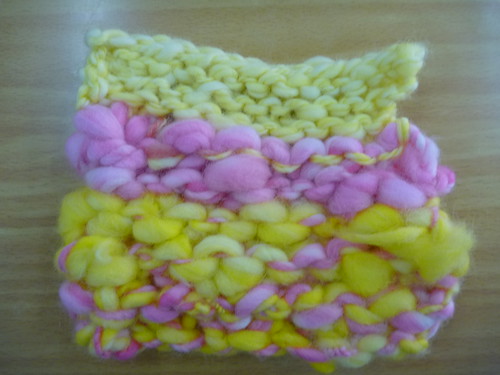
I don’t like handicraft projects. They seem to be very popular with private donors and small NGOs, but they’re mostly a bad idea. Here’s why:
It always seems to be women who are targeted with these efforts. Do you really empower a woman by sitting her in a room to knit all day?
Not every person is actually good at making handicrafts. You need a certain level of skill to make anything someone will buy. Not all women will get to that point, and being able to badly paint a trinket isn’t a transferable life skill.
Handicraft income is extremely unreliable. You need a market – generally tourists – for your product and that market is heavily influenced by global economic conditions. If the market fails and you’re stuck with 120 embroidered eyeglass cases, they don’t have a lot of intrinsic value. If you were, say, growing broccoli as a cash crop for foreigners you could eat least it yourself or sell it domestically if all the tourists went home.
The rhetoric about self-reliance from selling your own handiwork is all well and good to read, but linking people to one of the most fluctuating parts of the global economy isn’t precisely self-sufficiency. If you want to teach people to make and sell something, make it useful. Not trinkets.
That doesn’t mean we should never support anything made by hand. There is plenty of work to be done that is genuinely helpful.
You can support better market linkages for existing artisans. This might involve helping rural artisans sell directly to the capital without an intermediary, helping artisans gain access to international markets for their goods, or teaching them how to research current international tastes so they can make their products more sale-able if they choose to. You can help artists and artisans share their techniques, through helping them train others or documenting their work.
Handicraft projects always look like low-hanging fruit, but they’re more like low-hanging branches, getting ready to whack you in the head as you go by.
——–

I couldn’t agree more. Too many desperate Afri-crap sellers as it is. Another cadre of tourist trinkets will not spur wealth. Add to it that real artistry is really rare. Yet when I find it, I spend serious coin (for me). Usually about $1,000 a year, but only in two tranches as its that rare to find quality work.
Let me add that where I usually find (and spend) is at art shops who know what they are doing. Wonder Welders in Dar es Salaam, Tumar in Bishkek come to mind.
Great post. Everything you say above is true, and I especially want to point to your paragraph about supporting existing local artisans and bolstering the cultural sector and local economies. We need more effort directed to that.
Well said.
I think there are two exceptions, but these exceptions don’t need NGO help.
The first is places like Bali and Jogja, in Indonesia, in which handicraft production is a huge industry, and serious business, and supports hundreds of thousands of people. The other is places like the Middle Sepik, where a fabulous artistic heritage already provides a worldwide audience.
Agreed! I spent 3 months in India writing proposals for handicraft projects for women about how they’d be empowered and have a source of income whilst thinking – who is going to buy this stuff? is it actually any good? do the women even want to do it? why should they want to do it? Wish I’d said some of that at the time, but I was a lowly intern on my first project!
Yeah, but in Bali and Jogja the production of handicrafts is already commercial. They don’t need outside donations.